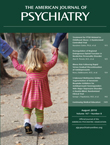Abstract
Objective
Rapid discontinuation of some psychotropic medications is followed by discontinuation symptoms as well as an increased risk of early illness recurrence. Recurrence occurs earlier after rapid than after gradual discontinuation with lithium and antipsychotics. The authors compared illness recurrence after rapid versus gradual discontinuation of antidepressants.
Method
The authors compared 398 patients with a DSM-IV diagnosis of recurrent major depressive disorder (N=224), panic disorder (N=75), bipolar II disorder (N=62), or bipolar I disorder (N=37). Two-thirds were women, the mean age was 42 years, and patients were treated with antidepressants for a mean of 8.5 months. Antidepressants were discontinued clinically, either rapidly (over 1–7 days; N=188) or gradually (over 14 days or more; N=210), with a mean follow-up duration of 2.8 years; patients who were ill at discontinuation were excluded from the analysis. The authors compared latency to first new illness episodes using survival analysis and Cox multivariate modeling.
Results
The latency to first illness with rapid discontinuation was 0.4 times that with gradual discontinuation, and the latency after rapid discontinuation was one-fourth the estimated average previous interepisode interval in the same patients. The effect was similar across antidepressant classes and across years; the pace of discontinuation had less effect with drugs of prolonged half-life. The effect also varied by diagnosis (bipolar I ≥ panic > bipolar II ≥ major depressive disorder) but not by episodes per year, duration of index illness, use of concomitant treatment, or antidepressant dose or duration.
Conclusions
The recurrence risk for depression or panic was much shorter after rapid than after gradual discontinuation of antidepressants. These findings have implications for both clinical management and the design and interpretation of clinical trials.



